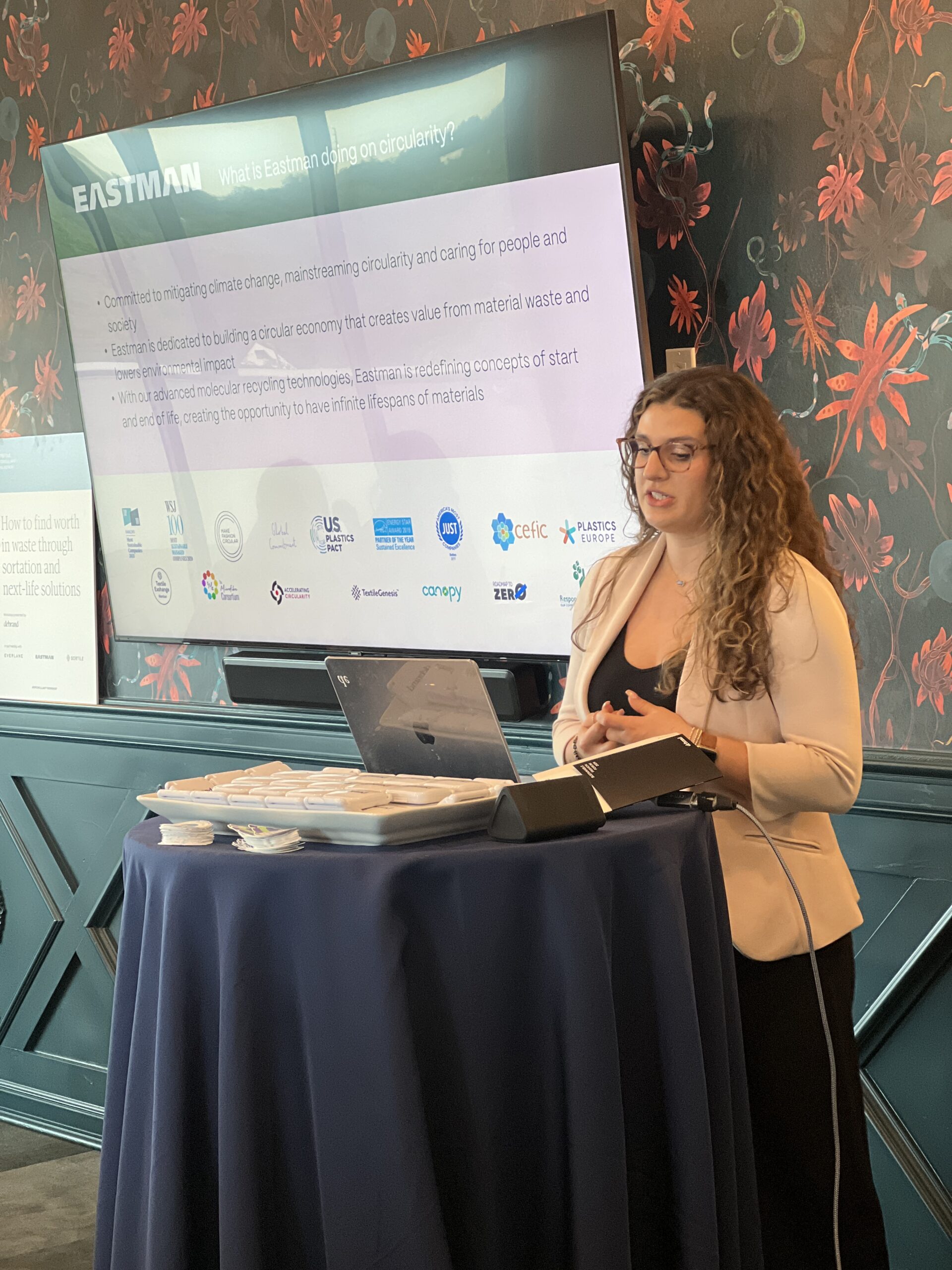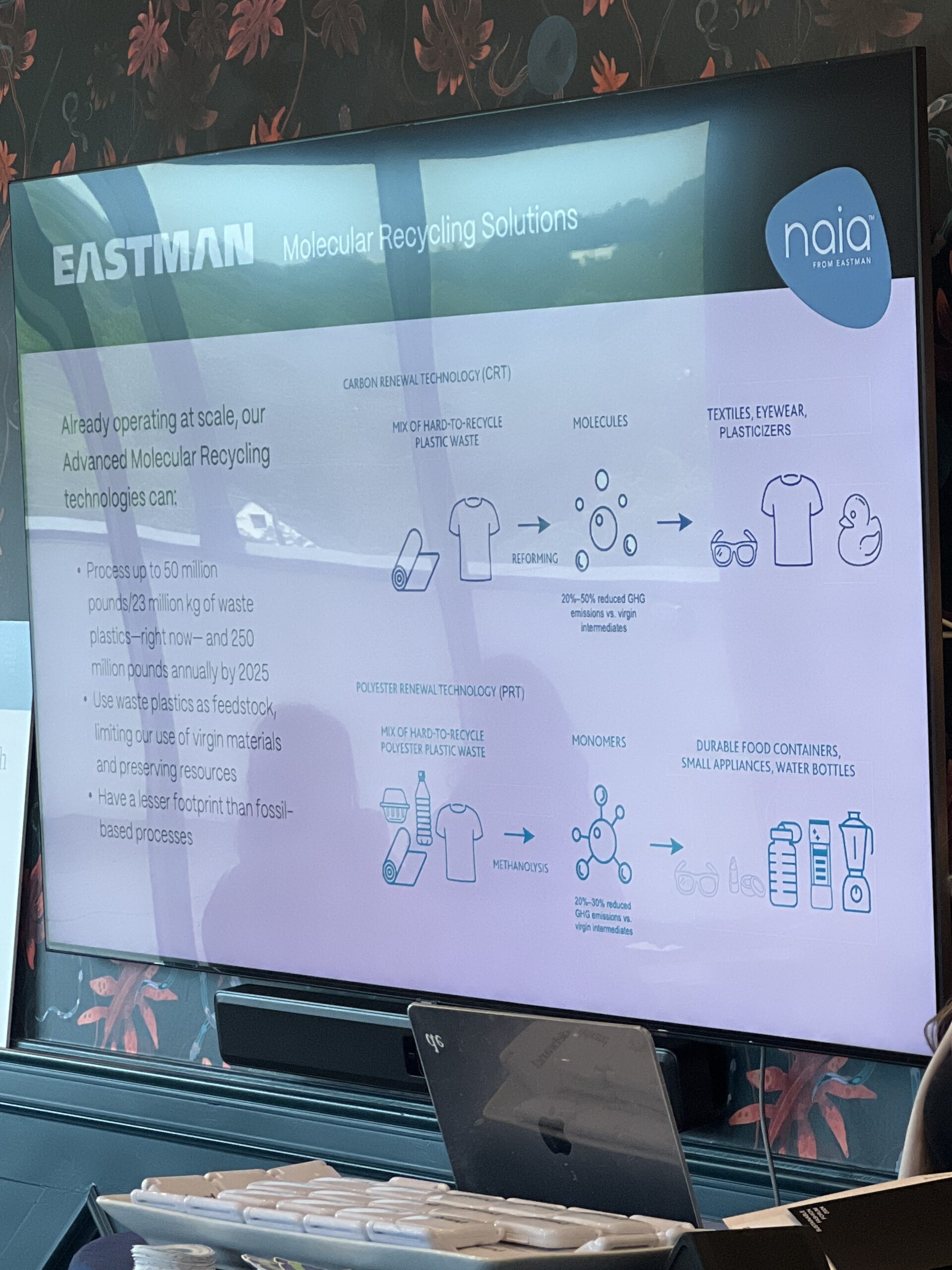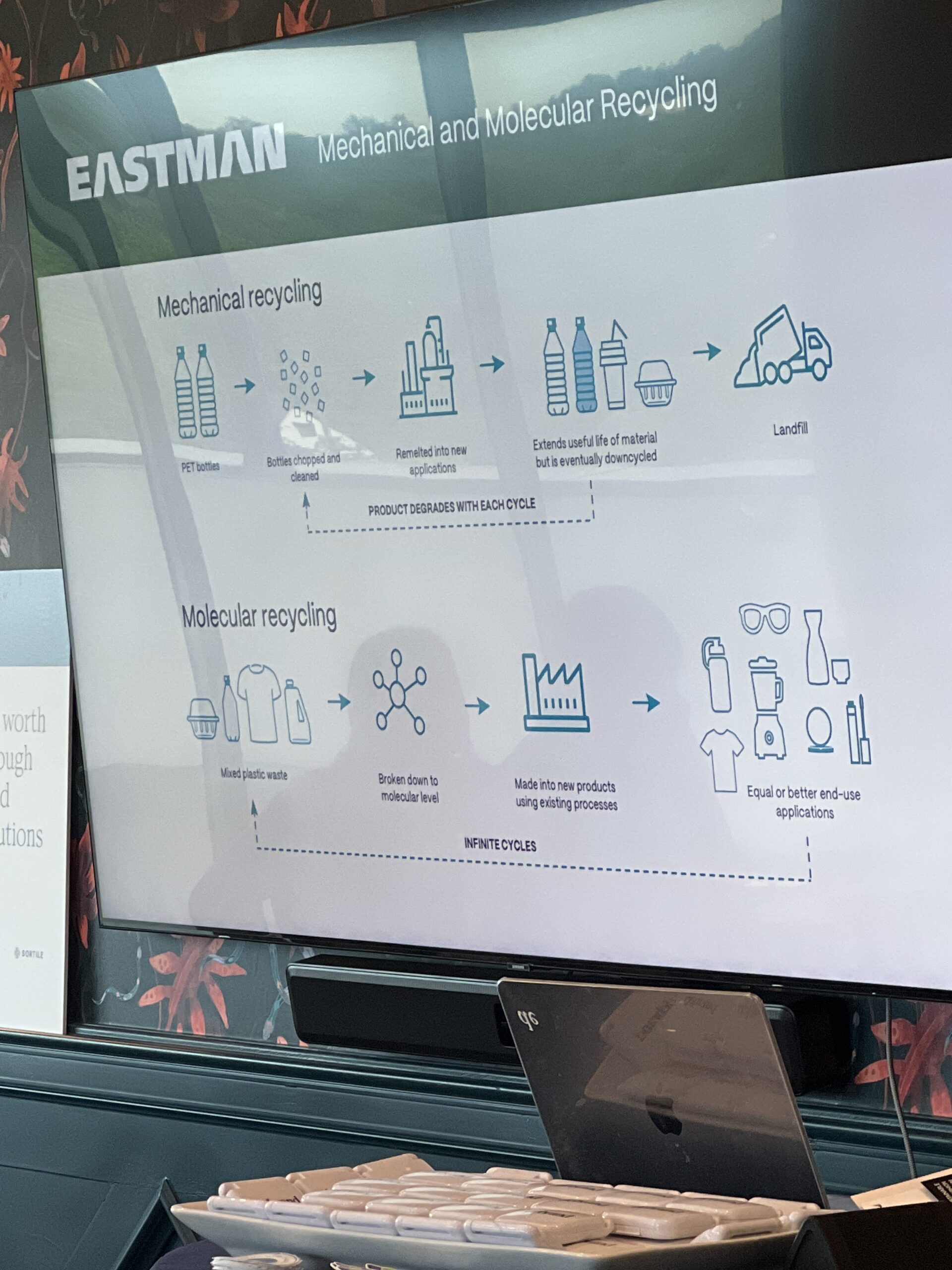Insights from the Sustainable Fashion Forum: Embracing Recycling and Technology for a Greener Future

Written by Christina Rodriguez
The Sustainable Fashion Forum and its preceding workshops illuminated the challenges and opportunities in creating a more sustainable fashion industry. One key takeaway was the importance of recycling and the role of technology in achieving this goal. During the workshops, the question of whether consumers should purchase garments with stains or defects was raised. While some consumers might be willing to pay a premium for brand-new items, others are open to buying slightly imperfect garments. The decision ultimately depends on the type of stain and the garment’s intended use. Finding a balance between sustainability and consumer preferences is crucial in this “messy middle.”

Textile identification technologies play a significant role in the recycling process. Although manual sorting is still prevalent, companies like Sortile are developing devices and software to streamline the process. However, human intervention and a well-trained workforce remain essential even with technology. Integrating data across the supply chain, from sales platforms to attribute tracking, is vital for making informed business decisions.


The reality is that 50% of the textiles collected in the US are not reusable, and the cost of sortation is high. To address this issue, molecular recycling technologies are being developed to create a concept of “end and start of life.” By breaking down materials to the molecular level, waste can be transformed into virgin-like quality materials. Blended materials are a solution to overcoming the challenges of recycling single-fiber garments.

Collaborations between brands like Debrand and Patagonia and recycling technologies like Eastman’s carbon renewal technology are driving the apparel waste demonstration project. The project aims to prove the capabilities of recycling and showcase the value chain. Innovative technologies, such as the technology that identifies garment composition, are being utilized to facilitate recycling.
The future of sustainable fashion lies in designing products with recycling in mind. As consumers, producers, and recyclers, we must ask ourselves what we want to bring back to our friends and the industry. Engaging younger generations, like Gen Z and Alpha, in the conversation about sustainable fashion is crucial. By sharing research and stories through platforms like Beauté In Tech Magazine, we can inform and inspire a new generation of fashion enthusiasts to embrace sustainability.
This is from a workshop presented by Debrand and the Vice President of Sustainability and Solutions at Debrand, Lina G. Londono.